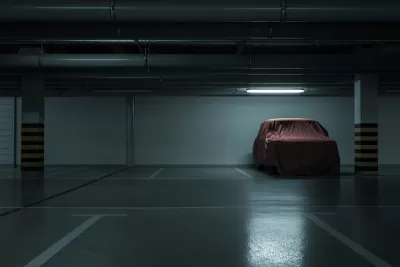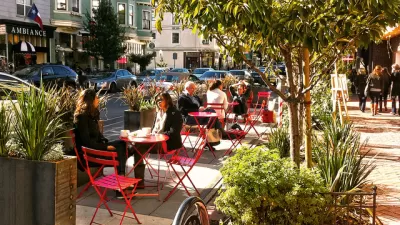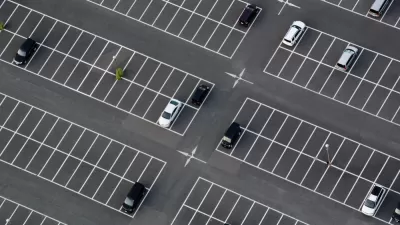After abolishing parking requirements, what can cities do to make the most of new space and revenue and avoid backlash?

In an opinion piece in Next City, Tony Jordan, president of the Parking Reform Network, ponders the next steps after the elimination of minimum parking requirements, a trend sweeping cities around the country.
This is a big break for cities, Jordan writes.
It’s not often that policymakers have an opportunity to make a simple change that simultaneously makes it easier to build abundant affordable housing, helps small businesses, encourages transit use, is rock-solid climate action, and actually saves the city money.
But Jordan argues that cities need to do more than just get rid of parking mandates. “Remove them and over time a few more apartments will be built at the expense of space for a few cars, but without further effort we might see little impact, or even worse, a backlash and the return of mandatory car storage.”
Jordan offers some suggestions for going beyond repealing minimums: “Cities should price their curbs to manage demand and spend the revenue on infrastructure and programs that improve safe, convenient, and equitable access to our communities for people traveling by any mode, not just in their cars.”
Jordan explains the value of curb space and how cities can leverage that value to improve safety for pedestrians and drivers, reduce vehicle miles driven, repurpose space for uses other than parking, and generate revenue.
FULL STORY: What Comes Next After Abolishing Parking Mandates?

Planetizen Federal Action Tracker
A weekly monitor of how Trump’s orders and actions are impacting planners and planning in America.

Chicago’s Ghost Rails
Just beneath the surface of the modern city lie the remnants of its expansive early 20th-century streetcar system.

San Antonio and Austin are Fusing Into one Massive Megaregion
The region spanning the two central Texas cities is growing fast, posing challenges for local infrastructure and water supplies.

Since Zion's Shuttles Went Electric “The Smog is Gone”
Visitors to Zion National Park can enjoy the canyon via the nation’s first fully electric park shuttle system.

Trump Distributing DOT Safety Funds at 1/10 Rate of Biden
Funds for Safe Streets and other transportation safety and equity programs are being held up by administrative reviews and conflicts with the Trump administration’s priorities.

German Cities Subsidize Taxis for Women Amid Wave of Violence
Free or low-cost taxi rides can help women navigate cities more safely, but critics say the programs don't address the root causes of violence against women.
Urban Design for Planners 1: Software Tools
This six-course series explores essential urban design concepts using open source software and equips planners with the tools they need to participate fully in the urban design process.
Planning for Universal Design
Learn the tools for implementing Universal Design in planning regulations.
planning NEXT
Appalachian Highlands Housing Partners
Mpact (founded as Rail~Volution)
City of Camden Redevelopment Agency
City of Astoria
City of Portland
City of Laramie





























